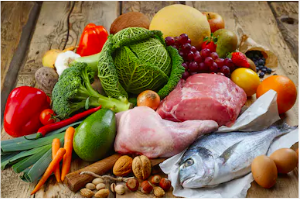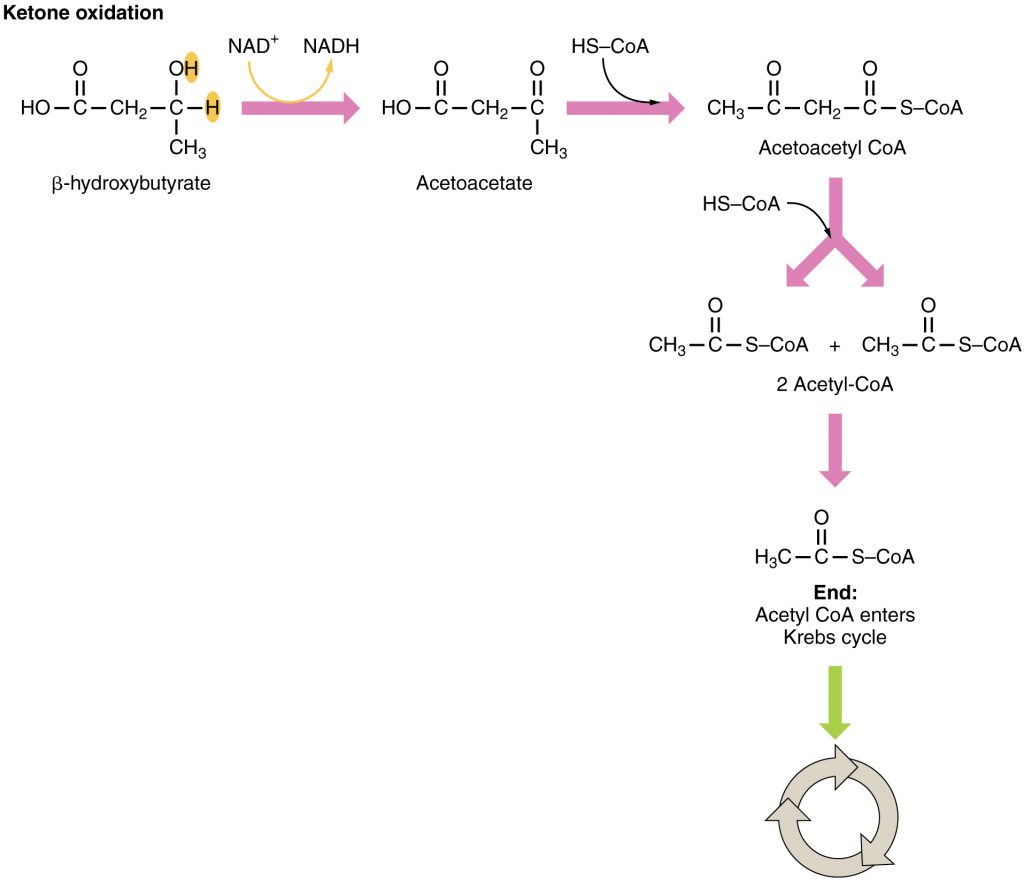There have been many different trends in the dieting world, with each new diet promoting varying degrees of fat and carbohydrate intake. The most recent trend to take off is the ketogenic diet, focusing on high fat low carb intake. Other big trends include: the Mediterranean diet and the Paleo diet. Now-a-days there are just too many diets to keep track of each promoting different health benefits. *Note what is written here is my own opinion of what each of these diets entail and in no way, are a reflection of a person participating in these lifestyles.
Recent fad Diets:
1) Mediterranean Diet

Example foods for Mediterranean diet. Source: Foxys Forest Manufacture/Shutterstock
Focuses on the consumption of healthy fats like olive oil and fish while eliminating processed foods and limiting red meat consumption. Has recently been named the 2019 best overall diet.
Benefits: Easy to maintain as there are many options, can cause weight loss and help prevent heart attacks and strokes along with type 2 diabetes.
Downside: It does not count calories or percentage of fat to carbs so it may be harder to follow for those adjusting to the diet. Limited milk consumption – for those who like milk. Cap on alcohol consumption – one glass max for women and two glasses max for men.
2) Ketogenic Diet

Ketogenic example meal. Source: anyaivanova/Shutterstock
Focuses on increasing your intake of good fat and protein while decreasing the amount of carbs. The type of carbs that are consumed should not be highly processed, and come from natural sources like fruits and whole grains. Carbs should be used sparingly, only as a filler if needed.
Benefits: Reduction of carb intake, therefore promote weight loss. Increased intake of omega-3 fatty acids which are the better of the 2 main fatty acids (omega-6 being the other)
Downside: It may cause irregularity, irritating your bowls. Puts restrictions on certain food groups, making it harder to order food at restaurants. If you are genetically predisposed to high cholesterol it increases your cholesterol.
3) Paleo Diet

Paleo diet example foods. Source: MaraZe/Shutterstock
Focuses on eating in the same way as our ancestors ate; emphasizing whole foods, lean protein, veggies, and nuts/seeds. This means that all processed foods are removed from your diet.
Benefits: There is evidence to show that this diet can lead to weight loss and a reduction in waist size as there is a reduction in carbs and more protein. Other benefits include reducing factors of heart disease and increased iron intake.
Downside: The elimination of normally nutritious and healthy foods such as grains, legumes, and dairy.
The above diets can contribute to weight loss and a healthier life. However, people should consult their doctors before attempting any of these sorts of diets as they may not be beneficial to everyone. It is always best to choose a diet that works for you and one that you can stick to.
~Christina M


